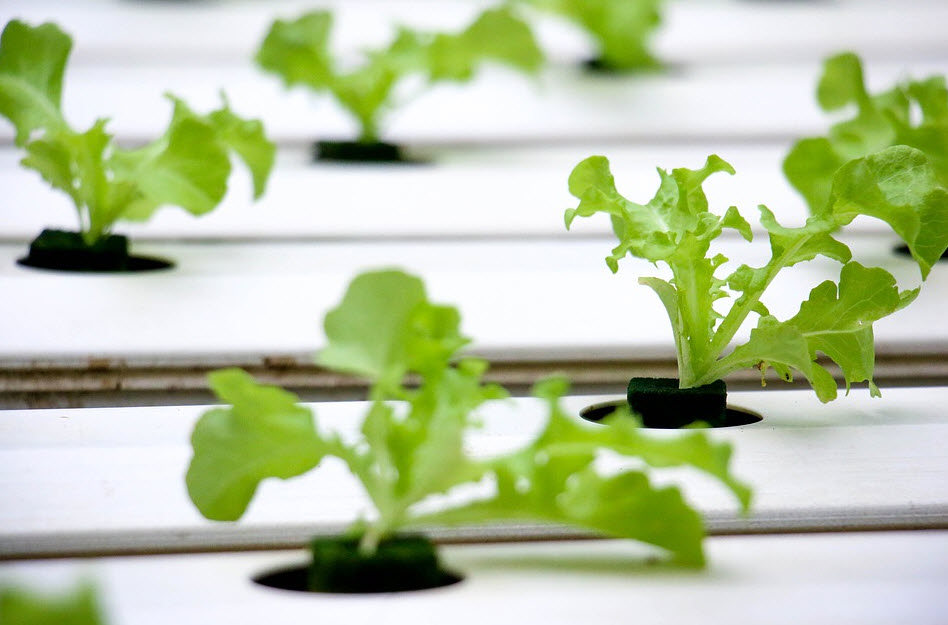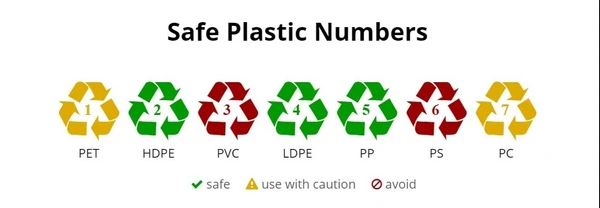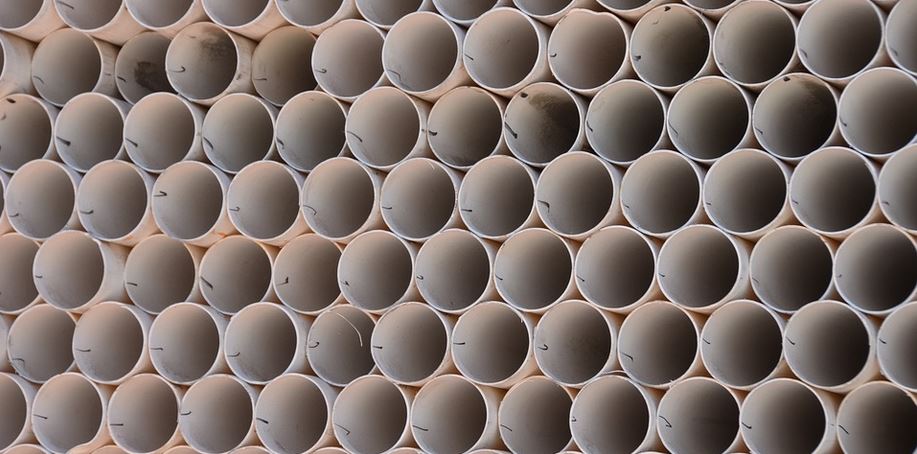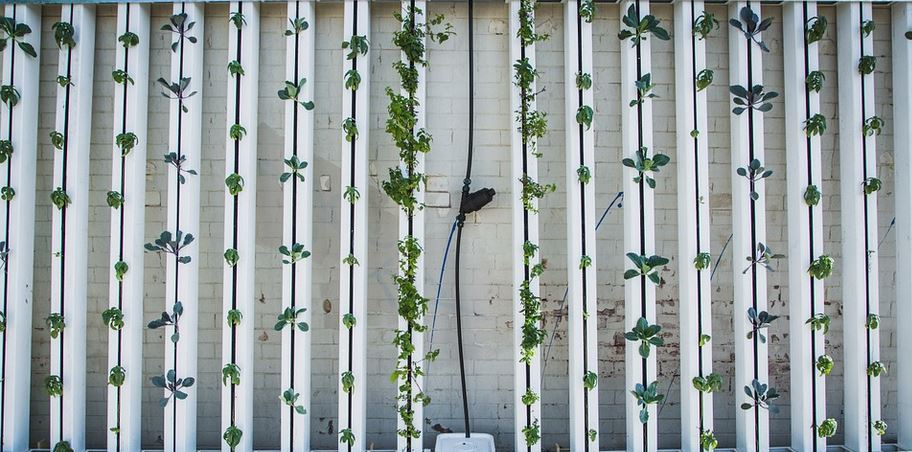Is PVC Safe for Hydroponics?
by Kevin
There are different types of PVC that are available. Some of them are not suited to use with a hydroponic system . The two that are safe for a hydroponic garden are ( uPVC or Rigid PVC ). It is essential to know which types of PVC materials are well-suited to use with hydroponic systems, and which ones you should avoid.
Contents
- Different strains of PVC
- How About Regular PVC?
- What Should Be Used Instead?
- PVC Hydroponics FAQ & Questions…
- What is PVC and how can it be used in hydroponics?
- What is the advantage of using PVC with your hydroponics system?
- I heard PVC affects the growth of plants. Is this true?
- PVC is a thermoplastic, thus is susceptible to melting, true or false?
- What are the advantages of PVC over other materials?
- Are there problems using PVC hydroponics and long root plants.
- My Final Thoughts
The hype behind PVC hydroponics caused these systems to become extremely popular, but they also caused confusion around the subject. This, combined with rumors that PVC isn't safe for hydroponics due to its toxicity, led to a shroud of mist settling in and I plan to blow that shroud away with the following FAQs.
There are different types of PVC that are available. Some of them are not suited to use with a hydroponic system . It is essential to know which types of PVC materials are well-suited to use with hydroponic systems, and which ones you should avoid.
Different strains of PVC

Different strains of PVC are available:
There are two different forms of plain PVC, either flexible plastic or unplasticized polymer. Unplasticized polymer is stiff and rigid and very durable when it is compared with regular PVC which is flexible and softer, although it is also not as durable as unplasticized polymer.
CPVC is a type of chlorinated PVC that offers such unique properties as chemical inertness, heat distortion temperatures, and high glass transition temperature. It contains more chlorine than regular PVC does.
PVC-M has a great deal of impact strength and is very tough.
PVC-0 is the strongest type of PVC and has very high tensile strength.
PVC and uPVC are the main types of PVC that are used in hydroponic systems. There is a lot more to consider about those two types of PVC beyond flexibility and rigidity.

To begin with, typically these materials are considered to be Food-Safe which means they do not contain any Phthalates or Bisphenol-A, which makes them safe for gardening.
If the PVC material has a stamp or mark with the National Sanitation Foundation's NSF-51 rating, then you know it is safe. This foundation sets standards and tests for environmental safety and public health.
Although uPVC is considered to be safe, it still is not recommended that PVC be used for hydroponic systems, or any plastic with a type 3 classification Although they do offer some benefits, it is best to use other alternatives that are available.
PVC Hydroponics systems have been around for a while now, but there are still a lot of questions that remain shrouded in confusion regarding them.
Modern systems tend to use PVC a lot and for good reason. PVC is one of the strongest, most flexible and cheap material to use for water and nutrient solution flood and drain or any type of hydroponic tree.
But let's take a look at some of the most frequently asked questions regarding PVC hydroponics.
Also read https://insideherbgardens.com/the-difference-between-hydroponics-and-aquaponics/
How About Regular PVC?
I heard PVC is toxic and dangerous to plants and humans, true or false?
You may be wondering why other types of PVC should not be used. It is due to the fact that they are not food-safe .
PVC is a type of thermoplastic polymer that is made out of different chemicals, which normally are comprised of Phthalates, Organotins, Lead, and/or Cadmium. When burned, it can also emit Dioxin, which is a class 1 carcinogenic and dangerous chemical.
They are toxic to humans and also will negatively impact your plants.. PVC pipes also cannot be recycled, and when exposed to sunlight for a long time, lead ash can be passed to the pipe.

The PVC, over time, can leach toxic chemicals out to your nutrient solutions. That can stunt the growth of your plants or kill them, even if you try using remedies to revive them. This is why people often consider PVC bad for hydroponics.
Another drawback to using PVC is that it is hard to get them connected to a hydroponic system. Various connections will need to be glued together, but there is the risk of over gluing. Upon installation, that can end up being toxic, and risk the lives of your plants as glue is running through the water.
This is why it is important for your pipes to be covered with paint or a reflective cover if you are planning on using uPVC with your hydroponic system. Or keep them inside of a reservoir cooler.
What Should Be Used Instead?
Now that you are aware that you should not use certain types of PVC or certain types of plastics, what materials should be used in your hydroponic system?
Type 7, 6, 3, or 1 plastics should no be used. Instead use such hydro-safe plastic as 5, 4, and 2. In addition to PVC, ABS pipes should also not be used because they contain BPA or Bisphenol-A. This can also cause various health hazards.
Here are the materials that we recommend that you use with your DIY hydroponic system:
High-Density Polyethylene (HDPE) is a number 2 plastic. They are safe to use in a hydroponic system since they do no spread high quantities of chemicals into your solutions. They are also recyclable and environment-friendly.
Polypropylene is a number 5 plastic and is a safe type of plastic to use with hydroponic systems. Although they do cause harm during their production process, they are safe to use in your system because they only leak trace amounts of chemicals. However, they normally cannot be recycled.
When safe plastics are used in your hydroponic system, it can affect the growth of your plants. Your plants will have a higher chance of growing successfully, it will be easier to install and maintain your system without the risk of intoxication or injury.
PVC Hydroponics FAQ & Questions…

What is PVC and how can it be used in hydroponics?
A: PVC stands for Polyvinyl Chlorite and is a thermoplastic polymer, basically a plastic that is extremely flexible, yet strong and durable. PVC hydroponic systems use this material for their piping.
What is the advantage of using PVC with your hydroponics system?
A: First of all, you will need your pipes to be durable, because there will be a constant flow going through them and for this, PVC is perfect. It's also a very flexible material, allowing you to reposition trays slightly, if needed. You can take a look at some of our free hydroponic designs to see how you can use PVC in your own systems.
I heard PVC affects the growth of plants. Is this true?
A: As far as scientists and practical experience could tell, no, that's just a rumor. PVC has no affect on the quality of the water or nutrients flowing through the pipes. Only metals that can rust in time will cause some problems for your plants, but PVC hydroponics are safe.
PVC is a thermoplastic, thus is susceptible to melting, true or false?
A: Indeed, like any other plastic, PVC can melt at high temperatures. However, to relate this to our subject, if your greenhouse traps in the kind of heat that can make PVC melt, then your plants are probably burnt to a crisp already.
What are the advantages of PVC over other materials?
A: Cost is probably the most important advantage PVC has over other materials, because it's a lot cheaper. The fact that it's extremely durable and sturdy, yet flexible is also a great advantage.
Are there problems using PVC hydroponics and long root plants.
A: Certainly. The problem refers to the fact that if you're growing long root plants, the PVC pipes can easily get stuck if the roots grow in that direction. One way to solve this problem is to use a landscape fabric that is permeable, but solid enough to stop the roots from invading the PVC pipes.
My Final Thoughts
So, yes PVC is a plastic that over time can break down and leech bad chemicals into your hydroponic water supply. But it really does take a while. And I have no personal problems with using it for my own systems. BUT, I also generally use "food safe" PVC and not the industrial stuff. And I am careful on what glues I use to bond the pipes and other parts.
So yes, I do think "food safe" PVC is safe for hydroponics and is also the very best low cost option there is.
Thoughts on "Is PVC Safe for Hydroponics?"
 |
 |
 |
 |
Hydroponics Tips